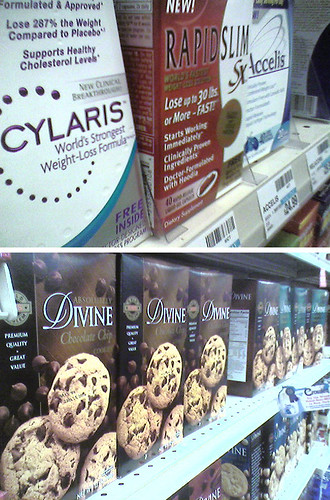I've mentioned these friends before. They live in a large house a couple of towns away, the sort of voluminous newly-built home on a grand scale that has frequently been the subject of derision in this space, but which in their hands feels truly homey. Although the woman of the house calls it the "Plastic Palace," it's been the site of some lovely small gatherings and warm conversation. And they have a freezer full of venison donated by their oil guy. And hell, the man of the house is a Brit, the good kind--he even gets to wear a funny wig and a black robe, like, officially--and they have a kid named after a working man's folk hero, while the lady of the house is worldly and writes for a travel blog and if these two want a McMansion well then let 'em have it.
Another thing you can't argue with is the way they engage with the large meadow that surrounds it. They borrowed goats from a farm up the road.
As we drove up the long dirt driveway across this long expanse of meadow, we noticed that the portable paddock had been moved around to one of the overgrown areas in front of the house. No camera, of course, but the juxtaposition of the two goats (one black, one white), the chest-high weeds, the thick metal tubing of the fence, and the stately home with its Palladian windows and stone facing was quite something.
We entered and had our white wine, natch, and chatted about this and that, and admired the rosemary-covered chickens roasting on the rotisserie on the deck, then our friend casually said that the farmer had called and asked them to rotate the livestock. In other words, pick up the paddock sections and move them to an uneaten portion of the meadow and get the goats back inside.
Naturally the males of the group -- the risk management consultant, the marketing professional, the architect, the college student -- began ritual primate displays and paraded outside (after another fortifying Sauvignon Blanc) to show these beasts who was boss.
It took a humbling half hour, not so much to move the fence sections, but to persuade Mushroom, the more capricious of the two goats, to get back into the pen once we'd moved it. Lured by white bread, the much more tame Seven had wandered in directly. No, the funny bit was each of us trying in turn to get Mushroom's attention or herd Mushroom or persuade Mushroom to go to her home. Things goats don't respond to: clicking sounds, claps, whistles, kissing noises, their name, injunctions to "come on" delivered while slapping both thighs and bending forward. Walking toward a recalcitrant goat may cause a rearing, snorting, and suggestive horn-flinging in the direction of the walker, who, if he is a white-collar professional wearing a polo shirt, will step back in some confusion and utter a single "I say!"
We finally hit on the plan of opening the section of the pen nearest Mushroom really wide, and she walked in.
That morning at the organic farm I'd been talking to one of the local agitators, a man who refurbishes old houses and turns them into sustainable businesses, who railed against one village's unwillingness to envision a future that didn't depend entirely on oil; a self-sufficient future, with local jobs, local food sources, local culture, local commerce. We talked up over and around it for a while then said seeya, and later that evening I found myself moving a goat pen in front of a McMansion with my educated, citified, worldly friends before stepping inside to a delicious dinner and highbrow conversation.
If we're lucky and we plan right, moving the goats is the future. I certainly hope it -- or something like it -- is in my future. Because many of the alternatives are a lot worse.

•






